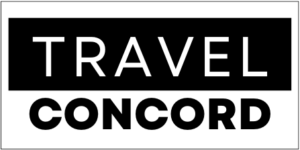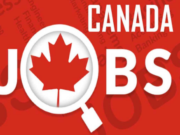The European IT job market is a competitive landscape where individuals with the right skills and experience can flourish. With the increasing demand for IT professionals across various industries, job seekers must position themselves as top candidates. Whether you are a recent graduate hoping to enter the field or a seasoned professional hoping to make a career change, several vital strategies can assist you with excelling in the European IT job market.
- Understand the specific requirements of the European IT job market.
The European IT job market is vast and highly competitive, making it essential for job seekers to understand the specific requirements to excel in this industry. One critical factor that separates the European IT job market from others is the importance of formal qualifications and certifications. European employers highly value candidates with degrees in computer science or related fields and industry-recognized certifications such as Cisco, Microsoft, or CompTIA.
In addition to formal education, experience is another critical aspect that European IT employers search for in potential candidates. Demonstrating hands-on experience in relevant technologies and tools can significantly increase your chances of landing a job in the European IT industry. This can be achieved through internships, work placements, or independent projects that showcase your skills and expertise.
Language skills are also highly valued in the European IT job market. While English is the lingua franca of the IT industry, knowing additional languages can separate you from different candidates. Fluency in languages such as German, French, Spanish, or Italian can open up further job opportunities and help you establish solid relationships with clients and colleagues across Europe.
Another essential requirement in the European IT job market is adaptability. With the rapid pace of technological advancements, IT professionals should be adaptable and able to learn new skills to stay competitive. European employers value candidates who are ready to adapt to changing technologies and developing industry patterns.
Moreover, having areas of strength for European data protection laws, such as the General Data Protection Regulation (GDPR), is crucial for IT professionals in Europe. GDPR compliance is a top priority for companies operating in the locale, and knowing these regulations can make you a valuable asset to potential employers.
Networking also plays a significant role in making progress in the European IT job market. Building connections with industry professionals, attending conferences and events, and engaging with online communities can assist you with expanding your network and accessing job opportunities that may not be advertised publicly.
Lastly, staying up-to-date with the latest patterns and developments in the European IT industry is important. Staying informed about new technologies, rising job opportunities, and market demands can help you tailor your skills and expertise to address the issues facing employers in the area.
- Tailor your resume and cover letter to highlight relevant experience and skills.
When applying for a job in the European IT market, the primary way to stand out is to tailor your resume and cover letter to highlight your relevant experience and skills.
Start by carefully examining the job description and requirements for the position you are applying for. The skills and experiences you are searching for, then highlight those in your resume and cover letter.
While crafting your resume, include specific examples of how you have successfully applied the skills and experiences the business seeks. For instance, if the job posting references experience with a particular programming language or technology, include specific projects or achievements where you have demonstrated proficiency.
In addition to highlighting your technical skills, make sure also to showcase any relevant, delicate skills referenced in the job posting. This could include teamwork, communication, problem-solving, or time management skills. Employers in the European IT market are often searching for candidates who can excel in their technical jobs, work well with others, and communicate effectively.
Your cover letter is an excellent opportunity to demonstrate your fit for the position. Use this space to explain why you are interested in the job, how your skills and experiences align with the job requirements, and why you would be a valuable addition to the team. Make sure to address the letter to the recruiting manager by name, if conceivable, and keep it concise and professional.
Finally, customize your resume and cover letter for each job application. While it may be enticing a generic rendition for numerous applications, tailoring materials to each specific opportunity shows that you are serious about the position and have put the thought through your experience to match the business’ necessities.
- Network with industry professionals and attend IT events or conferences.
Networking with industry professionals is crucial for anyone hoping to excel in the European IT job market. Attending IT events, conferences, and meetups provides an excellent opportunity to connect with similar individuals, learn about the latest patterns and technologies in the industry, and potentially even land a job or valuable connections.
One of the most mind-blowing ways to network with industry professionals is to attend IT events and conferences. These gatherings unite IT professionals from various companies, sectors, and backgrounds, giving a novel opportunity to meet people who could be valuable contacts from here on out. Whether you’re searching for a job, looking for advice on a particular technology, or interested in expanding your professional network, IT events are a great place to start.
Also Read: 3 Highest Paying IT Jobs in Germany
Conferences and meetups are also a great way to stay updated regarding the latest patterns and technologies in the industry. By attending presentations, workshops, and panel discussions, you can gain valuable knowledge about what’s happening in the IT world and how to position yourself for career success. You may try to discover new technologies or strategies that could give you a competitive edge in the job market.
In addition to attending events and conferences, it’s also important to actively search for opportunities to connect with industry professionals in your field. This could include reaching out to individuals on professional networking sites like LinkedIn, attending local meetups or workshops, or joining online forums and communities related to IT. By engaging with others in the industry and sharing your knowledge and experiences, you can construct relationships with similar individuals who may have the option to help you in your career.
While networking with industry professionals, it’s essential to approach the interaction with a certified interest in learning and connecting rather than just attempting to sell yourself or push for job opportunities. Be open to paying attention to other people, asking questions, and offering your own experiences and expertise when appropriate. Building authentic relationships with others in the industry can lead to valuable connections, mentorship opportunities, and even job offers not too far off.
Read Also: Discover the Ultimate Guide to Finding the Best Travel Deals.
Networking with industry professionals and attending IT events and conferences are essential to excelling in the European IT job market. By planning to connect with others in the industry, staying informed about the latest patterns and technologies, and approaching networking with an open mind and veritable interest, you can position yourself for success in your IT career. Thus, get out there, start networking, and watch as your professional network and opportunities develop.


























[…] How to excel in the European IT job market How to Land Lucrative IT Jobs in Australia 3 Tech Jobs in Canada with Visa Sponsorship How to Be a Travel Ultrasound Tech: A Comprehensive Guide 3 Best Countries with the Highest Paying Tech Jobs […]